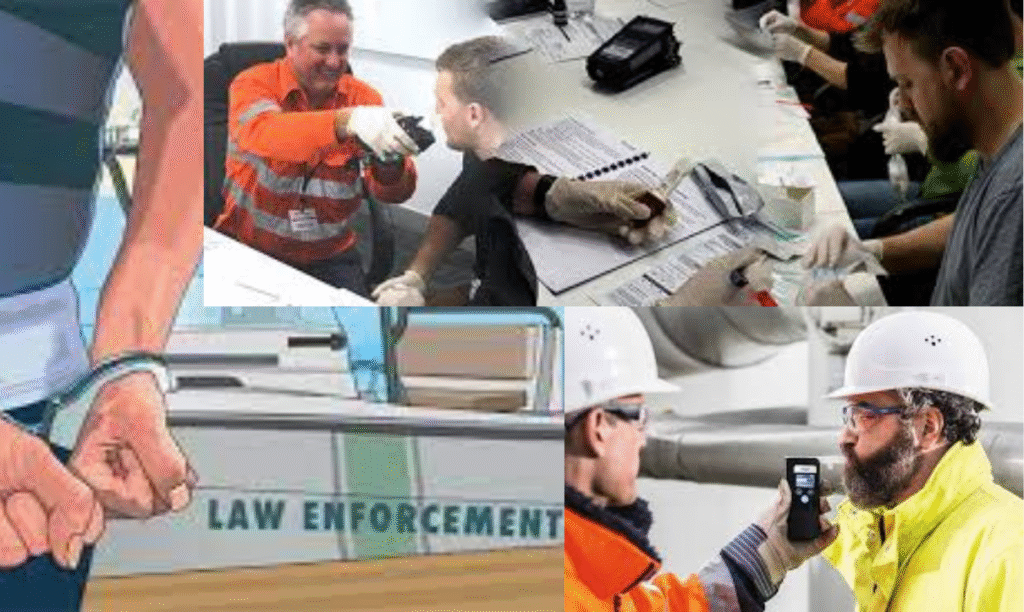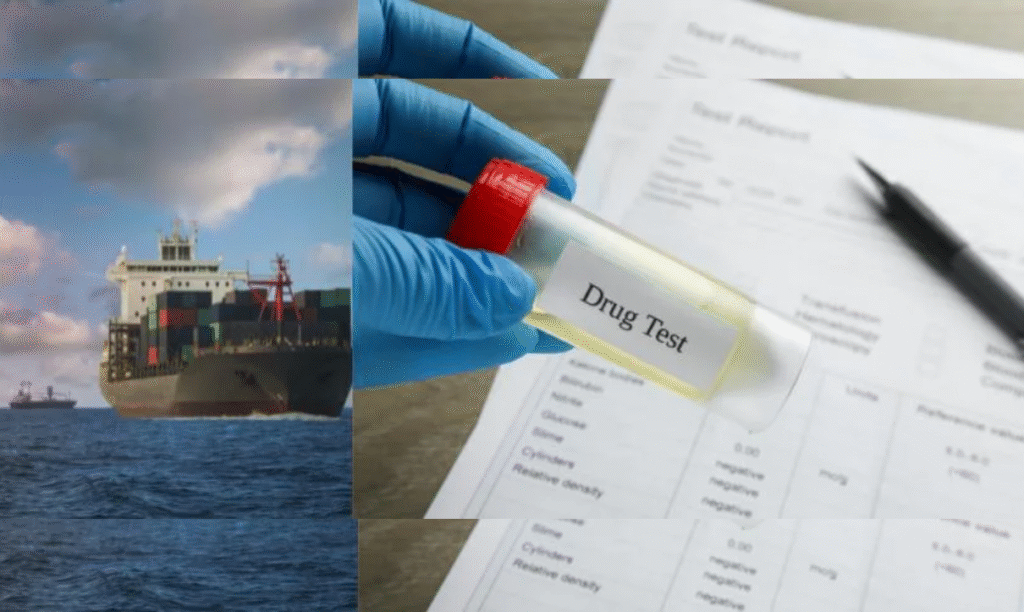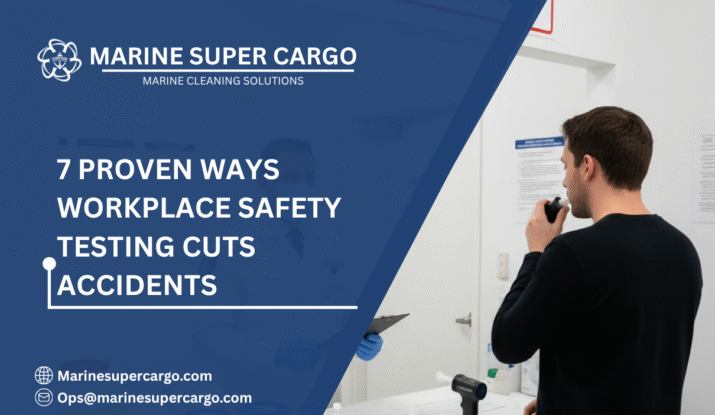When most people picture workplace safety, they think of helmets, gloves, and warning signs. While these tools are important, true safety goes much deeper—it starts with people. A workforce that is healthy, alert, and responsible forms the strongest line of defense against accidents. This is where Workplace Safety Testing becomes critical. By identifying potential risks before they escalate, it ensures that every employee is fit to perform their role effectively.
Among its many forms, drug and alcohol testing stands out as a cornerstone of prevention. It not only reduces the chances of accidents but also strengthens trust, boosts productivity, and safeguards the company’s reputation. In industries like shipping, it’s more than compliance—it’s survival.
Why Workplace Safety Testing is Essential
Picture this: a vessel navigating rough seas. Even the smallest misstep from a fatigued or impaired crew member could escalate into a catastrophe. That’s exactly what Workplace Safety Testing helps prevent.
Key reasons it matters:
- Prevents avoidable accidents and injuries
- Ensures compliance with strict international regulations
- Protects the company’s reputation and credibility
- Promotes a culture of accountability and trust
Workplace Safety Testing is like your smoke detector. Most of the time, it’s silent in the background. But when danger approaches, it’s the first line of defense.

Types of Workplace Safety Testing
Drug and alcohol checks aren’t the only tools in the box, but they are among the most critical.
Major Types
- Pre-Employment Testing – Screening candidates before they join.
- Random Testing – Keeping everyone vigilant and responsible.
- Post-Accident Testing – Verifying if impairment was a factor in incidents.
- Return-to-Work Testing – Making sure employees come back ready and fit.
Integrating these into your operations ensures that safety isn’t an afterthought—it’s built into the DNA of how you work. Also read about the Surveyor’s role during hull cleaning operations.
Regulations You Can’t Ignore
International frameworks make it clear: safety is not optional. For maritime operations, compliance is even stricter.
- IMO (International Maritime Organization): Requires seafarers to be fit for duty.
- MARPOL Convention: Focuses on the environmental risks tied to accidents, often indirectly linked to human error or impairment.
- IMCA (International Marine Contractors Association): Promotes a positive, responsible safety culture.
- IAPH (International Association of Ports and Harbors): Supports shared safety initiatives globally.
Workplace Safety Testing plays an integral role in meeting these obligations. Falling behind isn’t just about fines—it endangers people, assets, and the environment.
Link Between Testing and Fewer Accidents
The math is simple: reliable employees mean fewer disruptions.
Benefits include:
- Lower accident rates
- Reduced downtime and financial loss
- Preservation of cargo, crew, and vessels
- Higher productivity with fewer stoppages
- Insurance savings due to risk reduction
Think of Workplace Safety Testing as preventive maintenance for people. Just like you’d never ignore an engine inspection, you can’t ignore the readiness of your crew. Learn more about Powerful Reasons Drug and Alcohol Testing Matters.
Common Misconceptions About Testing
Some employees and even managers resist. But here’s what the facts tell us:
- “It’s about punishment.” Wrong—it’s about prevention and care.
- “It’s expensive.” Compared to the cost of an accident, it’s a bargain.
- “It invades privacy.” Modern testing ensures confidentiality and fairness.
When framed properly, Workplace Safety Testing becomes a policy employees respect, not resent.
✅ 4 Things to Check for Safety at Sea pic.twitter.com/dAxhJQ2i6U
— Marine Super Cargo (@Marinsupercargo) September 14, 2025
Future of Workplace Safety Testing
Technology promises exciting changes:
- AI can analyze fatigue and risk patterns.
- Non-invasive drug tests reduce workforce discomfort.
- Digital integrations link results to Safety Management Systems.
- Data-driven insights allow companies to spot risks early.
Tomorrow’s safety measures will be faster, smarter, and even more employee-friendly.
Marine Supercargo Expands Services: Drug & Alcohol Testing for Safer Seas
Marine Supercargo, globally recognized for its environmental solutions through the CleanShip.co platform, has broadened services to include Drug & Alcohol Testing. This move enhances fleet safety while strengthening compliance with global maritime regulations such as IMO, IMCA, and MARPOL.
For ship owners and managers, this means more than just ticking a compliance box. By ensuring their crews are fit for duty, Marine Supercargo’s testing solutions prevent delays, costly mistakes, and safety breaches. This expansion underscores the company’s mission: safeguarding not just ships and cargo, but also the marine environment. It’s a timely response to industry needs, ensuring cleaner seas and safer workforces worldwide.

Best Practices for Implementing Testing
To make Workplace Safety Testing effective, you must go beyond checklists.
- Set clear, transparent policies based on global standards.
- Educate employees on the purpose and benefits.
- Train supervisors to spot impairment signals.
- Keep records secure and accessible for audits.
- Foster fairness—testing should be even-handed, not biased.
Transparency ensures employees see testing as protection, not policing.
Conclusion
Workplace Safety Testing is far more than rules and regulations—it’s an indispensable safeguard for your people, operations, and reputation. Drug and alcohol testing ensures everyone on board is fit to perform, protects the environment, and helps companies maintain compliance.
Key Takeaways:
- Testing prevents hidden risks from escalating into accidents.
- Compliance with IMO and MARPOL builds safer, greener operations.
- New technologies promise smarter and more efficient systems.
The sea doesn’t forgive mistakes. Visit CleanShip.co to stay ahead of the curve and ensure your workforce is always ready to navigate safely.
FAQs:
Q1. Why is Workplace Safety Testing important in the maritime industry?
Because impairment at sea can cause catastrophic accidents. Testing ensures the crew are fit for duty, protecting lives, cargo, and marine ecosystems.
Q2. Does Workplace Safety Testing help reduce costs?
Yes. Preventing accidents, reducing downtime, and complying with regulations all save money long-term compared to the cost of safety failures.
Q3. How are international regulations linked to testing?
IMO, IMCA, and MARPOL require that crew remain fit and responsible. Workplace Safety Testing ensures organizations meet these safety obligations.
Q4. Can testing improve workplace culture?
Absolutely. Transparent testing builds trust, promotes accountability, and reassures employees that safety is taken seriously for everyone’s benefit.
Q5. Is safety testing relevant beyond shipping?
Yes. Industries like aviation, construction, and energy also rely on testing to safeguard employees, reduce risks, and maintain high operational standards.


